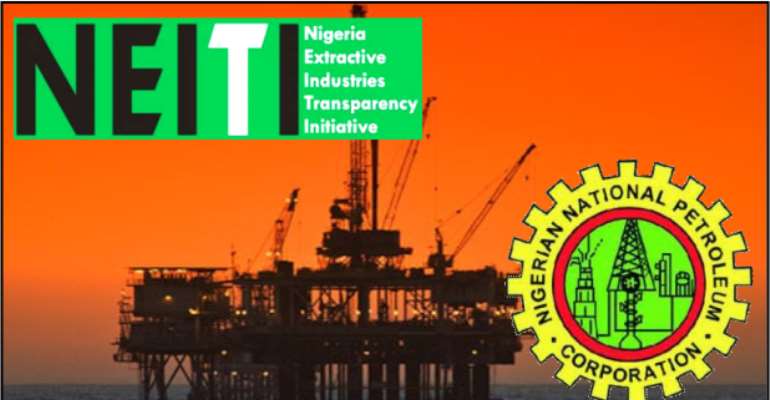NEITI Says Reports That Nigeria Loses $8m Annually From Crude Swap Deal Is Inaccurate

Clarifies Position On Alleged $22.
8bn Missing Fund SAN FRANCISCO, March 20, (THEWILL) - In an apparent clarification of its position on the alleged $22.
8bn missing oil money at the Nigerian National Petroleum Corporation (NNPC), during a recent legislative presentation, the Nigerian Extractive Industries Transparency Initiative (NEITI), on Thursday, described as wrong and misleading media reports saying NEITI alleged that Nigeria loses $8 billion annually through crude oil swap.
Making the clarification was the Director of Communication, NEITI, Dr.
Orji Ogbonnaya Orji.
"The media report from that presentation attributed to NEITI that the nation losses $8 billion annually through crude oil swap is not only wrong but misleading.
What NEITI presented and explained at that hearing was that there is no cost efficiency in the transactions with the offshore processing organisations,' he said.
According to Orji, the reports that NEITI uncovered $22.
8 billion unremitted funds to the Federation Account, published in several newspapers were not accurate.
"What NEITI presented and explained at the public hearing was that "the Federal Government, through the NNPC entered into alternative funding/financing arrangements with its JV partners in the form of third party financing from external financial markets, i.
e.
banks, and Modified Carry Arrangements (MCA) which are loans from existing JV partners, IOCs.
"NNPC's share in the third party financing is paid to CBN/NNPC crude oil and gas Dollar revenue account and subsequently swept to the federation accounts while under the MCA an escrow account is opened at the lenders' bank into which buyers pay proceeds from the crude oil and gas sales.
"NEITI observed that these transactions which sum up to $22.
8billion are off balance sheet items, not disclosed in NNPC's audited financial statements.
The implication is that there may be significant contingent liabilities to the federation that is not being disclosed.
"We need to state further that it does not mean that NEITI has discovered some funds hidden somewhere or monies that were unaccounted for by the NNPC.
That was why NEITI recommended that all alternative funding arrangements should be disclosed in the audited financial statements of NNPC for clarity and openness in line with the EITI principles," he explained.
Orji lamented that the contents of NEITI's presentation to the legislative Committee "have been largely misconceived, misinterpreted and misrepresented by some sections of the media.
" He nonetheless expressed gratitude to the media for their continued support to the agency.
"As an Agency with principles, methods, procedures and mandate firmly rooted in transparency, accountability and integrity, we are constrained to make some clarifications on key issues that were certainly not correctly reported by the media following that presentation.
"This clarification has become necessary in the overriding public interest, NEITI stakeholders, our international partners and the global Extractive Industries Transparency Initiative.
"NEITI's presentation to the Committee was based on the findings and recommendations of its 2009 - 2011 independent Oil and Gas Industry Audit Report, is in the public domain and on the NEITI website.
"All relevant government agencies, relevant committees of the National Assembly, companies, the media and civil society have copies of the Report which was also made public since last year," he stated.
But an insider source told THEWILL that 'a major contributing factor to current fuel scarcity experienced in Nigeria, are these sorts of sensational and misleading headlines, that makes accessing international finance to fund petroleum product delivery into Nigeria very difficult, due to compliance issues raised by such misleading headlines.
' Nigeria has just recovered from severe scarcity of petrol which the federal government said was caused by sabotage, diversion, hoarding, panic buying and rumours of imminent pump price increase.
During the crisis the price of fuel skyrocketed by over 60 percent from the approved pump price of N97 per litre.
